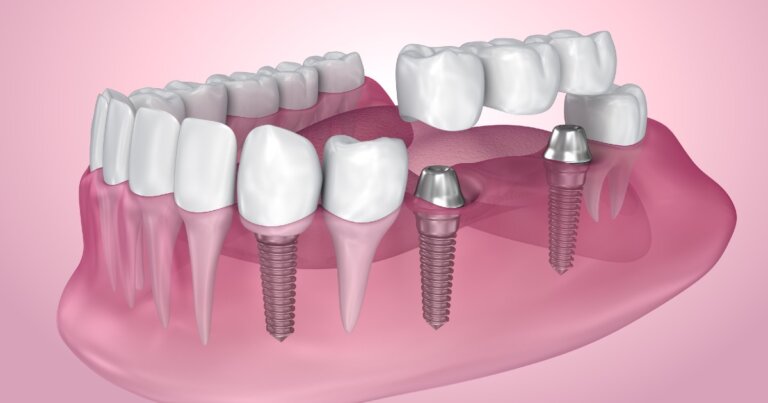Dental Implant Crown Home Care Instructions

How To Care For Your New Dental Implant Crown
Your Dental Implant Crown is designed to look and function just like a natural tooth, sitting securely on top of the implant. This is the final stage in dental implant treatment, achieved by taking a precise impression (digital or analog) of the implant and surrounding teeth. Proper care will help ensure your implant lasts a long time. Follow these home care instructions to maintain your new Dental Implant Crown effectively.
Oral Hygiene
- Brush After Meals: Brush at least twice daily—ideally, after each meal—to keep your dental implant crown clean. Use a soft-bristled toothbrush, like the Curaprox CS5460 Ultra Soft Toothbrush, to avoid damaging your gums and implant crown. You may also benefit from an electric toothbrush, such as the Philips Sonicare ProtectiveClean 6100, which can enhance plaque removal.
- Rinse When You Can’t Brush: When brushing isn’t possible, rinse your mouth with water or an antibacterial mouthwash like Crest Gum Care Oral Rinse. This helps clear away food particles and keeps your mouth fresher between brushings.
- Floss Daily: Flossing is essential for preventing plaque buildup around your dental implant. We recommend GUM ButlerWeave Dental Floss for easy cleaning or, if floss is difficult to use, try dental flossers or interdental brushes like the GUM Proxabrush.
- Invest in a Water Flosser: A water flosser, such as the Waterpik Aquarius, can complement regular flossing by thoroughly flushing out debris from around the implant. Aim to use it daily for best results.
- Use Antibacterial Mouthwash and Gum Care Toothpaste: A gum-care mouthwash and specialized toothpaste can support gum health and help prevent peri-implantitis. Crest Pro Health Gum Detoxify Deep Clean Toothpaste provides a thorough clean that targets bacteria along the gum line.
Food and Drink
Once your implant has fully healed, you can eat and drink as usual. However, avoid using your implant crown to bite into extremely hard foods, like ice or hard candies, to reduce the risk of damage.
Common Dental Implant Crown Issues and Solutions
While dental implants can last a lifetime with proper care, some common issues may arise. These are generally preventable with good oral hygiene and regular dental visits:
- Prosthetic Screw Loosening: Over time, the screw holding your crown in place may loosen, causing wobbling. Your dentist can fix this by tightening the screw.
- Unbonding of the Implant Crown: The cement or adhesive that holds your crown to the abutment may degrade over time, causing it to detach. Your dentist can re-cement it securely.
- Peri-Implantitis: This infection around the implant site often results from poor oral hygiene. Severe cases may require periodontal surgery or implant replacement.
- Porcelain Chipping: If the porcelain of your implant crown chips, your dentist can either smooth the rough edges or, if necessary, replace the crown entirely.
Regular Checkups & Professional Cleanings
Routine dental checkups and teeth cleanings are essential to maintain your implant crown. Schedule visits at least once a year for checkups and every 4 months for cleanings to remove tartar and plaque. Your dentist will monitor the implant crown’s condition, take digital X-rays as needed, and address any concerns early.
Have Questions?
If you have additional questions about caring for your Dental Implant Crown, please don’t hesitate to contact us for advice.

